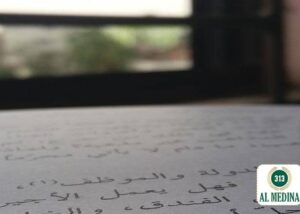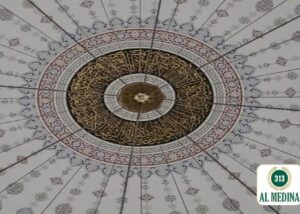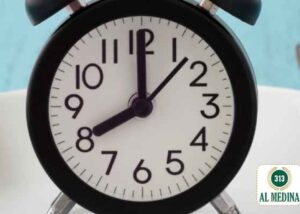Is the Hadith, whoever informs others of the start of Ramadan is prohibited to the hellfire, authentic?
Quran
Hadith
Islamic Text
Short answer
The start of Ramadan narration has not been referenced to a sound source. It goes on to say, such a person is saved from the fire. Since it has not been referenced correctly, it should not be narrated. Rather any person narrating it should be asked to reference it correctly or refrain from narrating it.
Not referenced
I have not seen the start of Ramadan narration referenced back to any of the authoritative works of Hadith. A person must refrain from narrating or forwarding Hadith that have not been referenced correctly, due to fear of them being inauthentic narrations.
It is important to note that, the onus of referencing Hadith and proving authenticity is upon the person narrating or forwarding the Hadith. Such people should be questioned regarding source and authenticity. Thus, the start of Ramadan narration should not be narrated or forwarded without confirming authenticity. It is a grave matter for a Muslim to spread dubious Hadith.
Caution with Hadith
عَنْ أَبِي هُرَيْرَةَ قَالَ: قَالَ رَسُولُ اللهِ صَلَّى اللهُ عَلَيْهِ وَسَلَّمَ: كَفَى بِالْمَرْءِ كَذِبًا أَنْ يُحَدِّثَ بِكُلِّ مَا سَمِعَ
Abu Hurairah said that the Prophet ﷺ said, ‘It is enough of a lie for a person to narrate everything that he hears.’ (Sahih Muslim, Chapter 3, Prohibition of Narrating Everything One Hears).
Being protective regarding the words attributed to the Prophet ﷺ is part of loving the Prophet ﷺ. A person who claims to love the Prophet ﷺ but takes no care in attributing things to the holy Prophet ﷺ is in clear error. He is also contradicting the teachings of the Messenger of Allah ﷺ as seen in the Hadith above.
The Imams of Hadith were clear on this issue. Hadith need to be referenced back to original sources that are well known. Imam al-Sayuti addressed this issue in his celebrated work, Tadreeb al-Raawi:
وَقَالَ ابْنُ الْجَوْزِيِّ: مَا أَحْسَنَ قَوْلَ الْقَائِلِ: إِذَا رَأَيْتَ الْحَدِيثَ يُبَايِنُ الْمَعْقُولَ أَوْ يُخَالِفُ الْمَنْقُولَ أَوْ يُنَاقِضُ الْأُصُولَ فَاعْلَمْ أَنَّهُ مَوْضُوعٌ.
قَالَ: وَمَعْنَى مُنَاقَضَتِهِ لِلْأُصُولِ: أَنْ يَكُونَ خَارِجًا، عَنْ دَوَاوِينِ الْإِسْلَامِ مِنَ الْمَسَانِيدِ وَالْكُتُبِ الْمَشْهُورَةِ (تدريب الراوي في شرح تقريب النواوي)
(Imam) Ibn Jowzi said, how great a statement the following is; if you see a Hadith that goes against that which has been understood, or contradicts that which has been narrated, or opposes the sources then know it is fabricated. He said, the meaning of opposes the sources is that it is not found in the established records, from the Musnad collections or well-known books. (Imam Jalal al-Deen al-Sayuti, Tadreeb al-Raawi).
Commenting on the Hadith (above), Imam al-Nawawi said:
قَالَ الْعُلَمَاءُ يَنْبَغِي لِمَنْ أَرَادَ رِوَايَةِ حَدِيثٍ أَوْ ذَكَرَهُ أَنْ يَنْظُرَ
The Ulema have said that a person who wants to narrate a Hadith or mention a Hadith must look into it (and not narrate without checking). (Imam al-Nawawi, Sharh Muslim, Vol. 1, pg. 71).
Check everything
Although it is particularly important to check Quran and Hadith before narrating from them, it is required to check all religious messages. The lack of care with religious knowledge has caused much confusion and misinformation to spread in the Ummah. Imam Ali al-Qari emphasised this when commenting on the above Hadith.
يَعْنِي: لَوْ لَمْ يَكُنْ لِلْمَرْءِ كَذِبٌ إِلَّا تَحْدِيثُهُ بِكُلِّ مَا سَمِعَ مِنْ غَيْرِ تَيَقُّنٍ أَنَّهُ صِدْقٌ أَمْ كَذِبٌ، لَكَفَاهُ مِنَ الْكَذِبِ أَنْ لَا يَكُونَ بَرِيئًا مِنْهُ، وَهَذَا زَجْرٌ عَنِ التَّحْدِيثِ بِشَيْءٍ لَمْ يُعْلَمْ صِدْقُهُ، بَلْ عَلَى الرَّجُلِ أَنْ يَبْحَثَ فِي كُلِّ مَا سَمِعَ خُصُوصًا فِي أَحَادِيثِ النَّبِيِّ – صَلَّى اللَّهُ عَلَيْهِ وَسَلَّمَ
If a person told no lie other than narrating everything he hears without verifying whether it is true or false then that is sufficient a lie for him to be guilty of it (of lying). This is a warning against narrating something that is not known to be true, rather it is incumbent upon a person to research what he hears, especially regarding Hadith of the Prophet ﷺ. (Ali al-Qari, Mirqaat al-Mafateeh, Vol. 1, pg. 240).
Conclusion
It is unacceptable to narrate Hadith of our beloved Prophet ﷺ without verifying authenticity. This should not have to be emphasised to Muslims since it is a manifestation of loving the blessed Prophet ﷺ. But unfortunately so many Muslims have completely failed when it comes to taking care with the words of the Prophet ﷺ. Therefore, one must not narrate the start of Ramadan narration unless it has been correctly referenced and authenticated.
And Allah (Most High) Knows Best.
– Answered by Shaykh Noorud-deen (11.03.2021)
See also:
Is the Hadith about Hitler, Nasser, Anwar Sadat, Saddam, etc. authentic?
See also (video):






